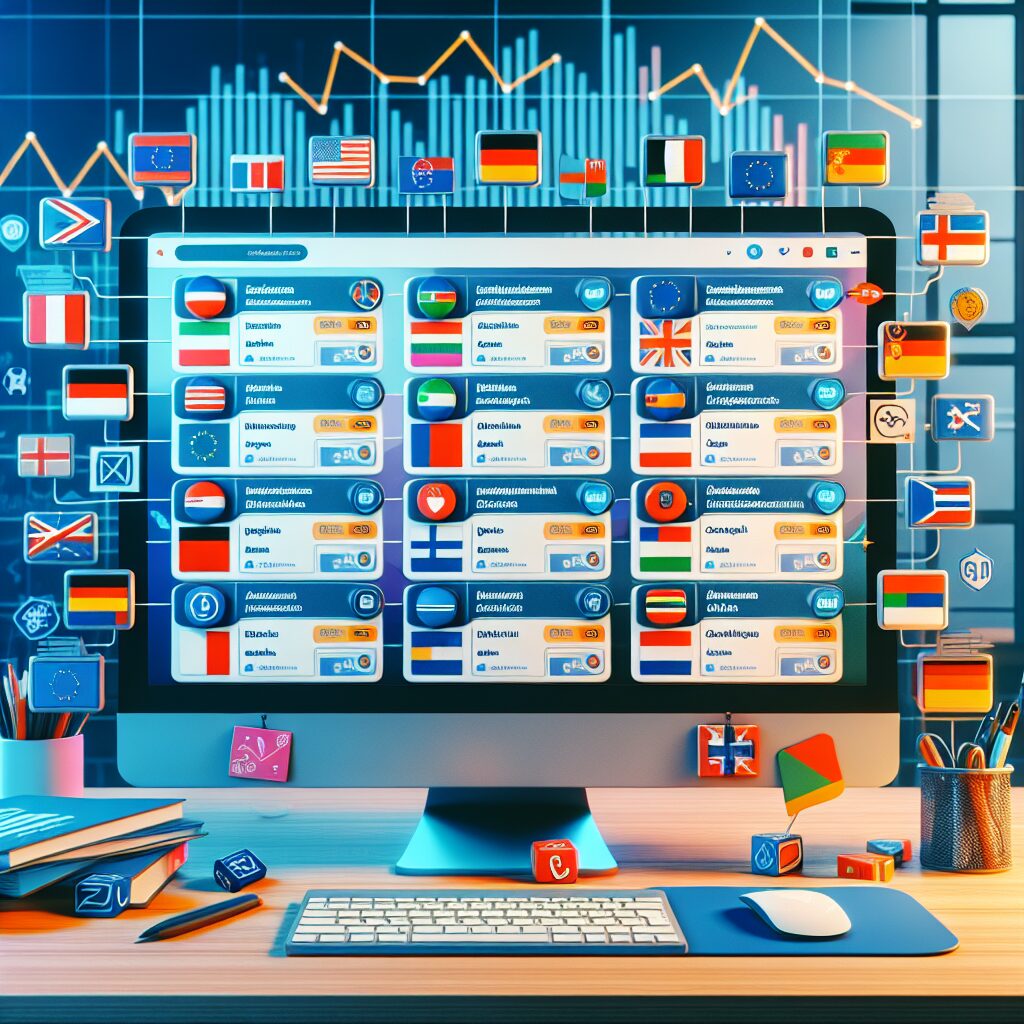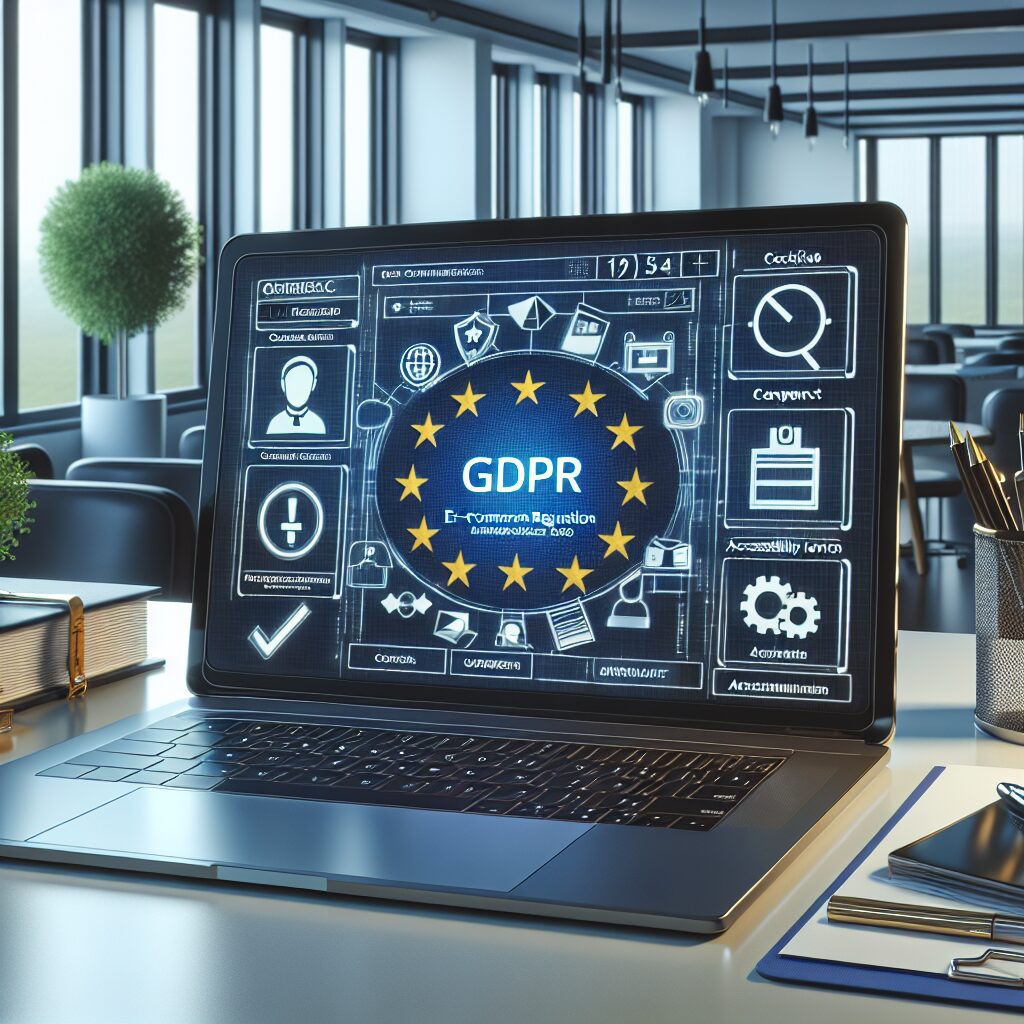About eldris
At Eldris, we automate SEO, multilingual site expansion, and EU compliance for brands scaling across Europe. Our AI-powered platform handles everything from content publishing to regulatory docs—so you don’t have to.
In This Article
- VerpackG registration is mandatory for non-EU sellers shipping to German consumers
- LUCID Packaging Register is the official public platform for registration
- You must also contract a certified dual system waste disposal partner
- Accurate packaging volume reporting is legally required and time-sensitive
- Marketplaces like Amazon enforce VerpackG; non-compliance leads to bans
- Automation tools reduce errors and save time for yearly declarations
- Eldris tools support EPR across Germany and other EU countries
Why VerpackG Matters for Global Online Sellers
Regulatory Impact on Cross-Border Ecommerce
VerpackG registration is a mandatory compliance step for non-EU businesses selling packaged goods to consumers in Germany. The Verpackungsgesetz, or German Packaging Act, requires companies to take full responsibility for the packaging they introduce into the German market. That includes ensuring proper collection, sorting, and recycling of materials in accordance with Germany’s extended producer responsibility (EPR) framework.
This legislation isn’t merely bureaucratic. It’s an environmental regulation with direct consequences on who can sell and where. Ignoring VerpackG registration exposes your operation to fines of up to €200,000 and potential bans from key ecommerce platforms like Amazon and eBay. Whether you’re a Shopify-based seller or a marketplace vendor, failure to comply can interrupt sales and tarnish your seller reputation.
Additionally, German consumers and online platforms are increasingly eco-conscious. Demonstrating environmental compliance through VerpackG registration enhances credibility and likability with buyers. Direct consumer preference often leans towards sellers who appear adherent to sustainability regulations, which are robust in the EU and especially in Germany.

Understanding the LUCID Packaging Register
Where and How to Register
The LUCID Packaging Register is Germany’s central public database for VerpackG registration. Managed by the Central Agency Packaging Register (Zentrale Stelle Verpackungsregister or ZSVR), LUCID is the first step in achieving compliance. All producers—defined broadly to include overseas sellers introducing packaging—must register here before distributing in the German market.
Registration on LUCID is free and must be completed before any product enters the market. You’ll need to supply key company information, such as your legal name, VAT ID, and contact person. Additionally, you need to identify the brand names that you place on packaging, and this information becomes publicly accessible to enable supply chain transparency.
Once registered on LUCID, a unique registration identification number is issued. This ID is necessary when contracting with a dual system provider—one of the certified systems authorised to manage packaging waste responsibilities. Skipping this step renders your dual system agreement void, as these providers cannot legally process packaging data without a valid LUCID ID.
“LUCID is more than a registry—it’s a legal checkpoint. Operating without registering puts your business at legal and marketplace risk.” — Eldris Compliance Team
Who Must Register Under German Law?
VerpackG applies widely and is particularly strict in determining who is deemed a ‘producer’. The term extends beyond traditional manufacturers. If you’re a non-EU seller shipping products directly to German consumers, you are considered the first distributor—meaning you qualify as a producer under the law.
Other qualifying scenarios include:
- Amazon FBA sellers with German fulfilment centres
- Shopify and WooCommerce sellers who ship directly to Germany
- Businesses using third-party logistics partners (3PLs) for German shipments
- Online sellers whose goods arrive pre-packaged and sealed for retail
Even dropshipping arrangements can fall under VerpackG if packaging originates outside and enters Germany under your brand. Businesses selling products that arrive in Germany already gift-wrapped or boxed for retail must also register. Essentially, if your packaging reaches the German end customer, you must comply.
Step-by-Step VerpackG Registration Process
Navigating the VerpackG registration process requires attention to detail. Each step builds upon the last, and omitting a single element may invalidate your compliance status.
Step 1: Identify Your Packaging Types
Before registration, evaluate the types of packaging you use—sales packaging, shipping packaging, or grouping packaging. Sales packaging reaches the end-user, while shipping packaging ensures delivery. Both must be reported and recycled.
Step 2: Register on LUCID
Set up your free LUCID account. Use legal business names and be consistent with all entity documentation. Remember to declare your brand names and chosen dual system provider here.
Step 3: Sign a Dual System Contract
Choose an approved recycling scheme like Interseroh, Der Grüne Punkt, or Reclay. Prices vary based on estimated packaging volume. You must provide your LUCID ID when registering.
Step 4: Declare Estimated Packaging Volume
Volume reporting must be accurate. Choose a transparent methodology for calculating expected packaging weight in kilograms, segmented by materials—e.g., paper, plastic, metal, glass.
Step 5: Submit Annual Declaration
After the calendar year ends, submit your final quantity report. Some system partners require this monthly or quarterly, so align with your dual system provider’s reporting schedules.
Contracting a Dual System for Recycling
The dual system providers carry out the environmental responsibility on behalf of producers. Think of them as your waste compliance outsourcing partner. These businesses oversee collection, sorting, and recycling of packaging recovered in Germany.
To remain VerpackG-compliant, you must sign an annual contract with one of these providers. Popular choices include Der Grüne Punkt, Reclay, Zentek, and Interseroh. Each offers online calculators for price estimates based on your packaging material and volume.
Ensure your contract is valid before dispatching goods to Germany. Delays or errors may require you to halt shipments temporarily. Having your registration number and estimated volumes ready helps accelerate contract creation.
Keep a record of your contract confirmation, invoices, and all correspondence. ZSVR may request these during compliance audits.
Declaring Packaging Volume Accurately
Honest and data-backed volume declarations are at the heart of VerpackG compliance. Declarations occur during initial system registration and at year-end. Intentional under-reporting is illegal and traceable during ZSVR inspections or dual system audits.
To calculate your volume:
- List all standard packing materials per product type
- Use scales to measure component weight—boxes, labels, plastic wrap
- Multiply by projected sales volume to Germany
- Segment weight data by material category
Use digital tools and spreadsheets to avoid duplication and improve transparency. Remember, your dual system and LUCID submission must align exactly. Misreporting triggers red flags.
Common Pitfalls for Non-EU Ecommerce Sellers
Overlooking Indirect Packaging Introduction
Some non-EU sellers believe they’re exempt because goods are shipped by fulfilment partners. In reality, Germany identifies the first commercial distributor as responsible. This includes Amazon FBA inventory sent directly to German fulfilment centres.
Lack of Volume Planning
Estimates must exhibit reasonable accuracy. Over- or under-declaring could lead to penalties or service interruptions, especially if clients lodge recycling complaints with ZSVR.
Missing Annual Reporting Deadlines
Each year, final quantity declarations must be submitted by 15th May. Delays can disrupt business and affect your listing eligibility on platforms like Amazon.de.
Outdated Data in LUCID
Business name changes, new brand names, or shifts in packaging models require immediate updates in your LUCID account—not just in your dual system contract.
Automating EPR Data and Annual Renewals
Many non-EU businesses struggle with packaging compliance due to manual tracking. Automating your EPR data simplifies everything. Software solutions can link your ecommerce platform to EPR reporting dashboards, automatically recording packaging volume by dispatch data.
Features to look for include:
- Auto-calculation of packaging weight by SKU
- Multi-marketplace integration (Amazon, eBay, Shopify)
- Real-time alerts on upcoming reporting periods
- Auto-fill submission forms for LUCID and dual systems
Using tech removes guesswork and reduces compliance risks. Some providers even trigger exports designed specifically for your dual system’s templates, ensuring consistency and accuracy.
Costs and Marketplace Enforcement in Germany
Compliance with VerpackG has associated administrative and subscription costs. Initial registration is free, but dual system providers will invoice annually based on declared packaging volume. For most SMEs, annual recycling fees range from €60 to €300.
Failure to register leads to:
- Marketplace delisting of your product listings
- Fines of up to €200,000 per violation
- Importation holds and German customs complications
Marketplaces such as Amazon and eBay are proactive in enforcing VerpackG rules. If you fail to supply your LUCID registration number, your listings in Germany may be suspended. This affects visibility, performance metrics, and logistics continuity like Prime eligibility.
Eldris Tools to Simplify Compliance
Eldris offers automated packaging compliance tools designed for non-EU ecommerce brands. From intelligent SKU-level material tracking to automated LUCID workflow integrations, our platform ensures timely and accurate VerpackG registration.
Key features of the Eldris suite include:
- Pre-built templates matched to your dual system’s reporting format
- Multi-country EPR tracker (France, Germany, Spain, and more)
- Built-in dashboard analytics showing compliance score
- Notifications ahead of every regulatory milestone
Our system integrates with top ecommerce platforms like Shopify, WooCommerce, and Amazon Seller Central to pull packaging and dispatch data automatically. Save time, eliminate human error, and remain German-market ready at all times. Learn more about EU Packaging Compliance & EPR
Conclusion: Ensuring Smooth Trade with Germany
Successful VerpackG registration is not just a legal checkbox—it’s a strategic asset for your ecommerce brand. Non-EU sellers must understand their responsibilities, commit to transparent volume reporting, and partner with trusted dual systems. This proactive approach minimises operational risk and maximises marketplace access.
Use modern tools, like those provided by Eldris, to automate the bundling of legal documentation, data collection, and annual submission cycles. Peace of mind stems from processes you don’t need to constantly monitor. Read a related article For additional support and guidance on staying compliant across multiple EU markets, explore this <a href="Understand VerpackG registration requirements“>comprehensive German EPR resource.
Great guide on verpackg-registration-guide-non-eu-sellers-interactive – Community Feedback
What is the VerpackG and who must register?
VerpackG is Germany’s Packaging Act. Any business, including non-EU sellers, sending packaged goods to Germany must register with the LUCID Packaging Register and participate in an approved recycling scheme.
How can non-EU sellers complete VerpackG registration?
Non-EU sellers must register with the LUCID Packaging Register, declare annual packaging amounts, and contract with a dual system for recycling to fulfil VerpackG requirements for German shipments.
What happens if a non-EU seller does not register for VerpackG?
Without registration, sales to German consumers may be blocked, listings removed, and fines issued. Non-compliance may also harm marketplace standing and reputation.








